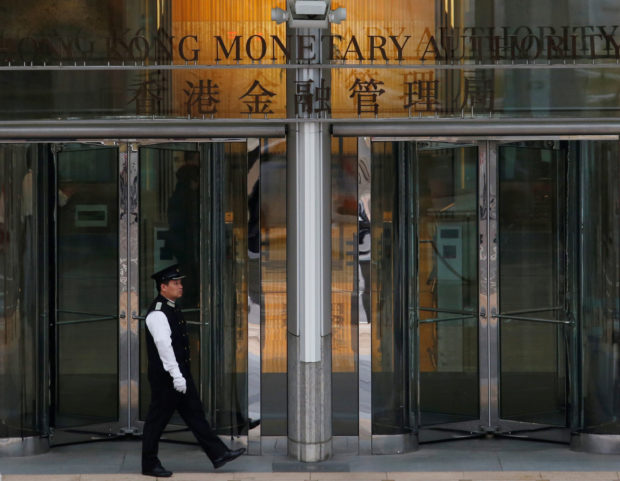
HONG KONG -The Hong Kong Monetary Authority (HKMA) on Thursday raised its base rate charged through the overnight discount window by 75 basis points to 2.75 percent, hours after the U.S. Federal Reserve delivered a rate hike of the same margin.
Hong Kong’s monetary policy moves in lock-step with that of the United States as the city’s currency is pegged to the greenback.
HKMA chief executive Eddie Yue said he expects the city’s overnight and one-month interbank rates, as well as short-term rates, to accelerate at a much faster pace.
“With funds flowing out from the Hong Kong dollar system, the interest rate automatic adjustment mechanism will kick in, driving the Hong Kong dollar interbank rates to gradually rise and track the U.S. dollar rates,” Yue said.
“This will help offset the incentives for carry trade and stabilize the Hong Kong dollar within the 7.75 and 7.85 range,” he added, referring to the tight band of the city’s peg to the U.S. dollar.
Soon after, Finance Secretary Paul Chan told reporters the city’s property market, where homes are among the least affordable in the world, had “strong underlying demand” and could withstand higher interest rates.
“The basics of our property market remain resilient, although the sentiment will be dampened because of the increased mortgage payments and the expectation of the rate to go up further,” Chan said.
He added Hong Kong banks also had ample liquidity, as well as low exposure to property developers in mainland China which are facing a severe downturn.
Hong Kong private home prices fell at a faster pace in June and dropped to the lowest since December 2020, official data showed on Wednesday, as homebuyers stayed on the sidelines due to an uncertain outlook.
One month Hibor – the Hong Kong Interbank Offered Rate, a benchmark used for pricing mortgages – last week rose to its highest since May 2020.
The Federal Reserve raised the benchmark overnight interest rate by three-quarters of a percentage point. The move came on top of a 75 basis point hike last month and smaller moves in May and March, as the Fed stepped up efforts to cool inflation.
Fed Chairman Jerome Powell told a news conference following the rate announcement that he did not believe the U.S. economy is currently in a recession but that it is softening.
(Reporting by Donny Kwok and Kiki Lo; Editing by Kenneth Maxwell and Kim Coghill)

